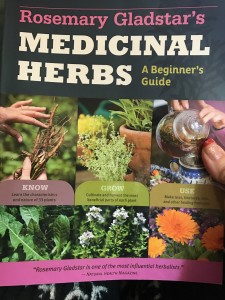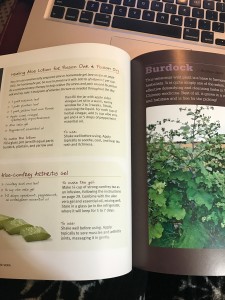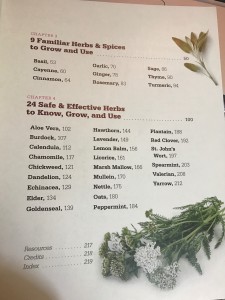Medical care, even on a small scale, is something no household can avoid. Knowing how to care for your family with herbs you have on hand is a skill that will lead to great self-reliance. I do believe that western medical care has a vital place, life-saving care is their specialty and they are great at it. When it comes to colds, ear infections, coughs, teething, rashes, bug bites, and general well being we can do a lot to alleviate the need for trips to the doctor.
I began studying herbs and natural health care around 1995 when I discovered that medicine was derived from plants, how that never occurred to me before I don’t know. At that time I didn’t have access to information on the web so I relied exclusively on the library and bookstore purchases. Today, we are blessed with the availability of masses of information at our fingertips with a simple google search. The big struggle for us today is determining what books and resources are the best to start with. The information can be overwhelming and, as a beginner, you want to be sure the resource is also reliable. Though I know you can find almost all this information online, I am a BIG believer of “real” books. You never know when you may lose the internet through some disaster (when you need this information the most) – you do not want to be left without the ability to care for your family.
I am giving this suggestion today because recently I was asked what books I would recommend on this subject. I have many books in my library but I wouldn’t recommend all of them to someone new to this topic. The one I am going to cover is NOT the only one out there, but I do believe this book is a really great starter book.
Rosemary Gladstar is a well-known name in the field of herbology. Her writing is easy to understand and very conversational. In her book “Medicinal Herbs: A Beginner’s Guide” she covers many essentials that any budding home herbologist would need to know. What I appreciate about this book is that she starts out by covering the basics:
- What is a Medicinal Herb
- How is Herbal Medicine Used
- Starting Your Own Home Medicine Garden (something I highly recommend!)
She covers 33 of the most common herbs to grow and use, describing their growing conditions and care, medicinal uses, and recommended preparations. These herbs are useful for numerous conditions or issues so if you follow this book you will be extremely well-prepared for almost anything.
There is also an entire chapter dedicated to basic recipes for making your own herbal remedies:
- Herbal Teas
- Syrups
- Oils
- Salves
- Tinctures
- Herbal Pills
- Poultices and Compresses
The portion of the book covering each herb is set up like a materia medica, detailing the parts of the plant that are used, what the key constiuents are, and any safety factors you need to take into consideration. After that she gives specific recipes that include the herb and what to use it for.
The index is thorough and makes it simple to find what you need by either using the name of the herb, the name of the recipe, or the name of the ailment. The one issue I have with this book is not a huge problem to most beginners, but it becomes a bigger problem as you progress – the book does not use the Latin name for the herbs. Believe me, I do not like to memorize Latin names (although it does make me feel smarter), but I have found many issues with using common names – depending on location an herb may be called something different. When you are using herbs medicinally it is important you are using the right one! This problem is also one of the reasons this book is so accessible to beginner herbologists, she speaks the language in a way newbies can understand! My advice is to look up these herbs online and find their Latin names, write them in next to the common name so you become comfortable using the Latin (and you too can feel smarter)!







Leave a Reply
You must be logged in to post a comment.